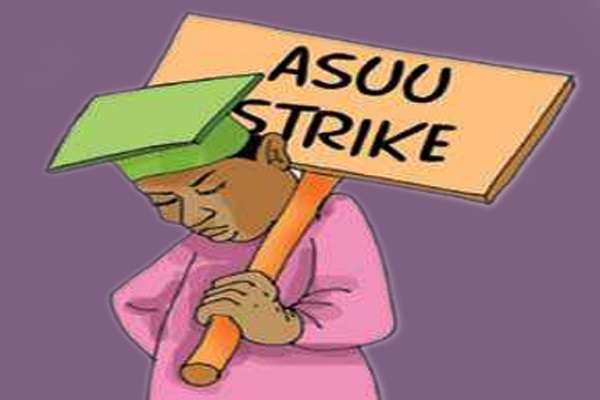The Academic Staff Union of Universities (ASUU) has expressed dissatisfaction with the Bola Tinubu administration, accusing it of failing to fulfill numerous promises made to the union. The union also hinted at a potential nationwide strike in January if the situation remains unresolved.
ASUU President, Prof. Victor Osodeke, highlighted these concerns in an interview on Monday, stating that the union’s patience over the last three years has not yielded results.
“The government has made many promises, but all we have seen is that they are playing games,” Osodeke said. “Lecturers are owed arrears for January to December 2023, and they are exhausted.”
The union leader pointed to several unmet commitments, including the promised release of a ₦300 billion NEEDS Assessment fund for universities. Although the allocation was approved in the budget earlier this year, the funds have yet to be disbursed.
Another point of contention is the Integrated Personnel and Payroll Information System (IPPIS), a centralized payment platform introduced by the Federal Government. ASUU has repeatedly criticized IPPIS for inaccuracies and inefficiencies.
“We raised concerns about IPPIS, and the government claimed it had been resolved with GIFMIS,” Osodeke explained. “However, we found that GIFMIS operates similarly to IPPIS, so there’s no significant improvement.”
ASUU also lamented the lack of progress in discussions with the government. According to Osodeke, a government committee promised to consult higher authorities regarding ASUU’s demands but has yet to provide feedback after two weeks.
“Despite our ongoing engagements, we have not heard anything substantial from the government,” Osodeke stated.
The union warned that if the government fails to address its concerns, it may embark on an industrial action in January 2024.
“We will convene in January to review the situation and may declare a strike action,” Osodeke said, noting that specific dates would be communicated after the meeting.
ASUU’s recent warning follows a similar ultimatum issued in September, when the union gave the government 14 days to resolve outstanding issues. That ultimatum, an extension of an earlier 21-day notice, ended without an industrial action.
ASUU had then cautioned that it should not be held responsible for any disruptions arising from the government’s failure to address the issues.
With the possibility of another strike looming, stakeholders in the education sector are bracing for the potential impact on Nigeria’s tertiary institutions, which have experienced prolonged disruptions in recent years due to unresolved disputes.






